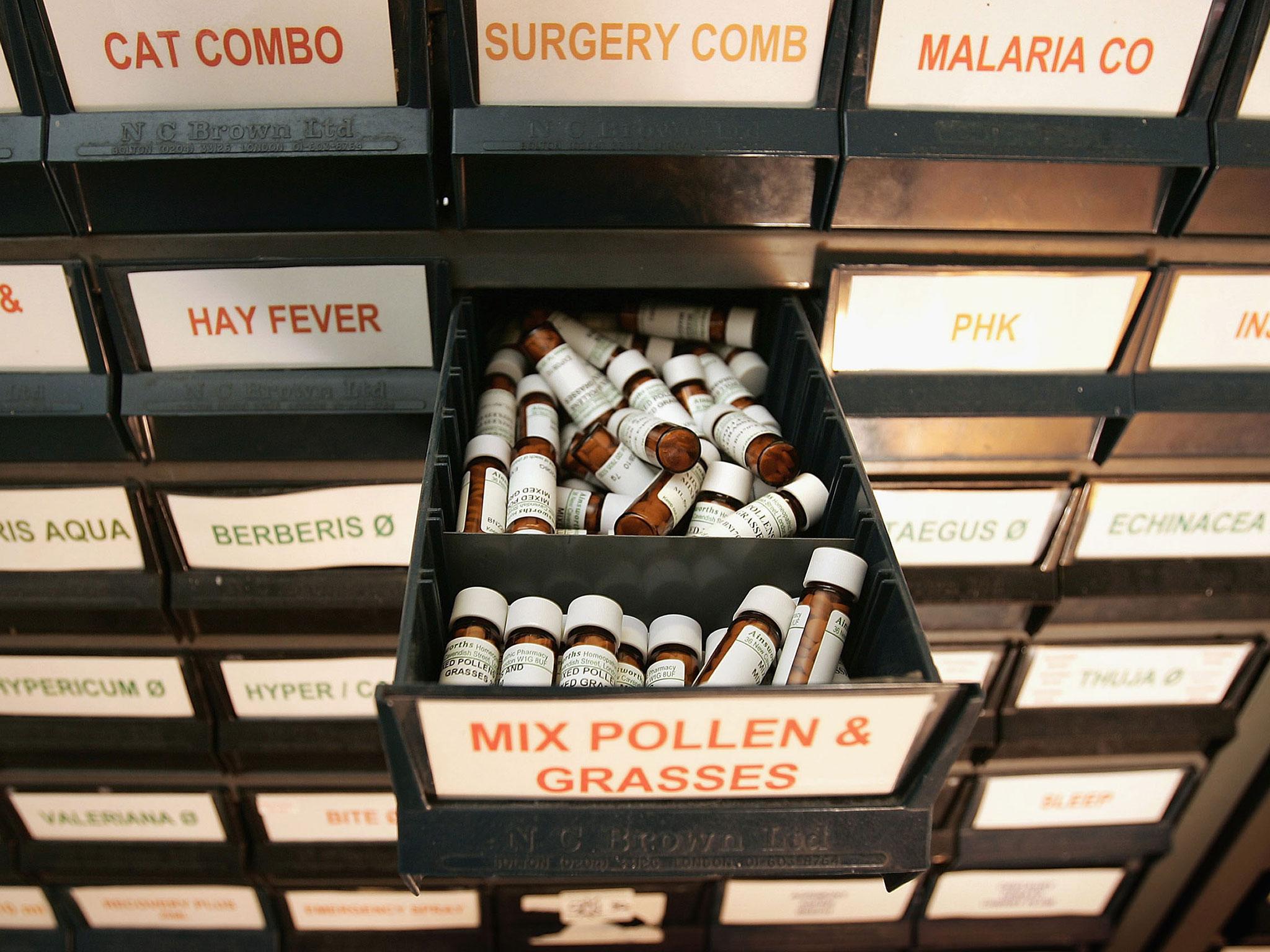If the NHS is in crisis, why is it still forking out £5m for homeopathy?
How can it be that something like the NHS, in such catastrophically dire straits as it is, can afford to fritter away such an amount of money on what is, essentially, quackery?


Your support helps us to tell the story
From reproductive rights to climate change to Big Tech, The Independent is on the ground when the story is developing. Whether it's investigating the financials of Elon Musk's pro-Trump PAC or producing our latest documentary, 'The A Word', which shines a light on the American women fighting for reproductive rights, we know how important it is to parse out the facts from the messaging.
At such a critical moment in US history, we need reporters on the ground. Your donation allows us to keep sending journalists to speak to both sides of the story.
The Independent is trusted by Americans across the entire political spectrum. And unlike many other quality news outlets, we choose not to lock Americans out of our reporting and analysis with paywalls. We believe quality journalism should be available to everyone, paid for by those who can afford it.
Your support makes all the difference.The NHS, we are constantly told, is in crisis. Now I come to think of it, I can’t remember a time during my life when it wasn’t in crisis. You’d have thought by now it might have buckled under the strain, such is the perpetual state of emergency it apparently exists in: the media hysteria surrounding its status is enough to convince anyone that fires must rage in the background as mammograms are performed, that GUM clinics are regularly raided by marauding Norsemen, and that whole wards are washed out to sea the moment nobody’s looking.
Though spending continues to increase, waiting times rise apace; this morning we awoke to the news that patients awaiting routine operations – to repair knees, say, or replace hips – will have to wait even longer than the present limit of 18 weeks in order to make improvements in things like cancer diagnosis times throughout the service.
Elsewhere, hospitals were told by the head of NHS England that funding, to the tune of millions, would be withheld unless more was done to “confront” patients about their smoking and drinking habits.
And earlier this week, a plan to save up to £1bn was announced, which stated that the NHS would no longer provide things like sun cream or gluten-free food, as it would be cheaper for the taxpayer if they were bought on the open market.
Some of these measures are welcome, and yet, profligacy in the system remains. The Telegraph reported yesterday that, whilst gluten-free pizza, used as part of a regime to treat coeliac disease, would no longer be prescribed, homeopathic remedies and treatments would be.
It almost beggars belief that the NHS ever provided things like sun cream for free, but homeopathy? Dame Sally Davies, the Chief Medical Officer, described the practice as “rubbish”, and has previously voiced her consternation that homeopathic practitioners are permitted to “peddle this way of life to prevent malaria and other infectious diseases” at the taxpayer’s expense.
Homeopathy, according to the British Homeopathic Association, is a “natural form of medicine”, based on the concept that “like cures like”; that is to say, that exposing the body to a tiny portion of an ailment, combined with a greater quantity of water, powder or something to dilute it, can cure a much larger one. People often confuse homeopathy with alternative medicine like tea tree oil or aloe vera, but the truth is that it’s much, much weirder than that.
The science behind the homeopathic idea that dilution can make things stronger is, to say the least, scarce – certainly scarce enough for the Chief Medical Officer to decry it as brazenly as she has done. Disturbingly, however, a BBC investigation conducted last year discovered that, although the number of hospitals in the UK offering the “service” had been reduced from four to two, homeopathy was still costing the NHS somewhere between £4 and £5m annually.
As the report stated, it’s chicken feed for an organisation with a £2bn black hole burning through its back pocket, but still enough to train an additional 200-odd desperately needed medical staff for life.
How can it be, then, that something like the NHS, in such catastrophically dire straits as it is, can afford to fritter away such an amount of money on what is, essentially, quackery? Last month there were calls to ban smoking, in the open air, outside NHS properties. It was something that would save next to no lives, and save the NHS next to no money, yet was raised as a matter of urgency, as literally any action that might possibly reduce the financial burden on this great state leviathan caused by smoking was considered essential.
Could the homeopathy budget not go towards lung cancer treatment? Only this morning the Standard carried a story about a baby in need of £700,000 to have experimental treatment, which may or may not save its life, yet the fact remains: the money isn’t there for that treatment, while £5m is available for homeopathy.
While £5m a year can be squirreled away to pay for treatment which is at best a helpful placebo and at worst snake oil, we continue to hear about an NHS “in crisis” with “tough decisions needed” on cuts. It’s our national religion, but it is a broken one, and paying millions for homeopathy is but another calamitous sacrifice placed on its high altar: a testament to its failures.
Join our commenting forum
Join thought-provoking conversations, follow other Independent readers and see their replies
Comments